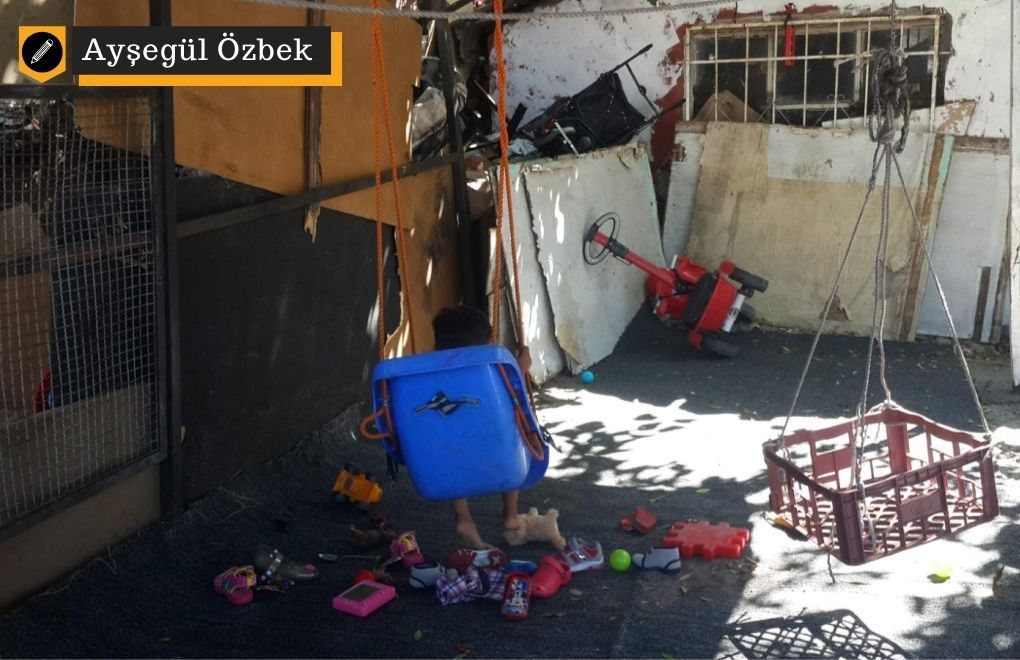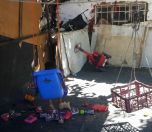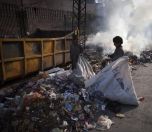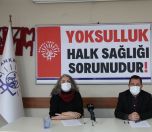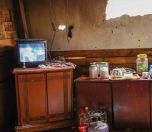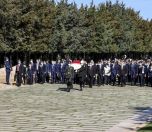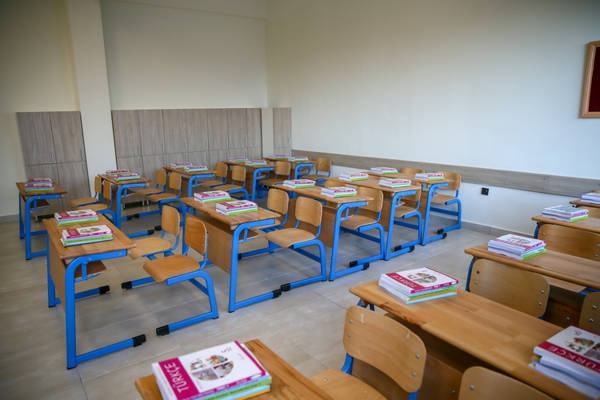* Photos: Deep Poverty Network
Click to read the article in Turkish
Some of them want to be a designer, some of them a doctor, a nurse, a lawyer, a captain, a painter... These are some of their dreams.
They are children from İstanbul's districts of Ataşehir, Beyoğlu, Çekmeköy, Fatih, Şişli and Ümrainye... These children are all suffering from deep poverty, they cannot access healthy food and clean water, which are both indispensable for their development.
Selen Yüksel from the Deep Poverty Network tells bianet that they are in contact with nearly 2,400 households from 34 districts of İstanbul.
What do these children from İstanbul are deprived of the most? Yüksel lists some of the things that are essential for their development and upbringing, but they do not have any access to: Baby formula, drinking water, baby diapers, school supplies...
'No safe space for playing games'
"Deep poverty both 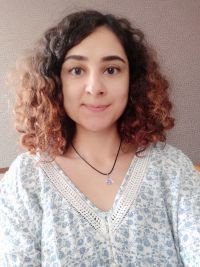 leads to several violations of children's rights and is itself caused by the fact that children's rights are not protected. The fundamental rights of children living in deep poverty conditions, such as their right to development and life, are violated. They cannot get used to sufficient food, a safe environment and enough stimuli necessary for their physical, mental, social and emotional development.
leads to several violations of children's rights and is itself caused by the fact that children's rights are not protected. The fundamental rights of children living in deep poverty conditions, such as their right to development and life, are violated. They cannot get used to sufficient food, a safe environment and enough stimuli necessary for their physical, mental, social and emotional development.
"This leads them to be deprived of equal opportunities for development with their peers, layering the inequalities they will face in youth and adulthood.
"They might not be able to access a safe environment for playing games, which is necessary for their mental and emotional development. When they start school, they face social exclusion as they do not have a school uniform, school supplies or a food bag. Inequalities increase incrementally during their education process. They cannot access enough food necessary for their active participation in the education process or the education materials necessary for their education."
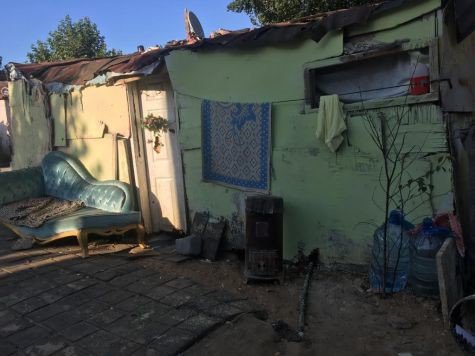
'Rice flour, instant soup instead of baby formula'
But, what about the children who are younger than the school age? How do the children in the 0-6 age group experience deep poverty?
According to Selen Yüksel, a child who is prematurely born, has special needs and needs supplementary food as the mother's milk does not suffice is fed with rice flour, rice porridge or instant soup, instead of baby formula, when he or she is born into deep poverty.
"Inequality and violations of rights begin after the birth of the child. The 0-6 age period is of considerable importance for children's development in the sense that most of their mental development happens in this period and their basic senses of trust and social skills are also developed and acquired in this period. The consequences of inequalities faced by children in this period might have irrecoverable damages on their lives in the future.
"The children at this age are prevented from accessing their basic needs such as the existence of sufficient food, play times that they can spend with their families in safe spaces and enough stimuli for their mental development. I say that they 'prevented' because children's right of development is guaranteed by international conventions and governments are directly responsible in this matter.
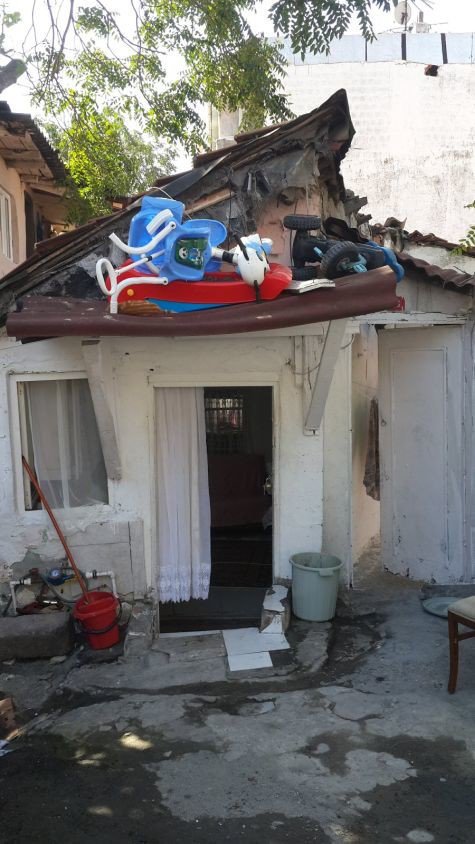
'Limited access to drinking water'
"Spending their 0-6 age period without accessing sufficient food, by living in conditions of shacks/ tents deprived of basic hygiene and safety and without accessing books and toys, children start their lives both in deprivation of equal opportunities and as inheritors of poverty.
"In addition to all these, there is also another striking fact: They have limited access to drinking water. While families are trying to protect their children from several diseases, they cannot access clean water to give their children or to prepare their baby formula.
"In talks with the families, we realize that making younger children drink tap water might be dangerous. We hear the stories of children who have to be hospitalized because they got poisoned after drinking tap water or ate expired baby formula."
'Meal cooked in one household, eaten by many'
On the other side, Selen Yüksel underlines that families prioritize the needs of their children. She tells us that families have to collect food from the garbage and give it to their children after washing, they buy one diaper at a time from the grocery store, they cannot access hygiene products and maintain the hygiene of their households only with water and they sometimes cook meal in one household and this meal is then shared with the children from neighboring households.
'I have never heard of EBA TV''In the meetings, we realized that some children did not know anything about the [Education Ministry's distance learning channel] EBA TV and distance education. In one family, an 11-year-old girl talked about her distance education process in the following words: 'I have never heard of EBA TV. There is a TV at the house, but our school is closed early this year. I have never met my teacher.' Besides, it is seen that even when the child does not have the technological means to take part in distance education, the attention and care of the teacher can prevent the child from drifting apart from the school. 'Nothing left to read at home'"Children also say that during the pandemic, they are away from not only their schools, but from playing games as well. One mother told us, 'Street or a park is not the case for children anymore. It has fallen really hard on them. My elder daughter likes reading a lot, there is nothing left to read at home'. "To the children that we supported with tablets, internet and distance education during the pandemic, we asked their dreams about the future. They want to be a designer, a doctor, a nurse, a lawyer, a captain. A child we talked to said that she wanted to become a painter and she was painting pictures at home all the time, but she does not have paints." |
'Parent is sick, child works'"Children work in 13 percent of the households that we met as part of the Deep Poverty and Human Rights During the Pandemic study. In 6 percent of them, children were the sole breadwinners. Children say that they have started working because their parents are so sick that they cannot work or their income falls short of meeting their expenses. 'Child labor will increase after the pandemic'"In addition, according to our experiences in the field, in families living in deep poverty conditions, children generally work in fields with poor conditions and long working hours such as collecting papers and scraps, peddling and working in textile. Not only is the development of these children working in these conditions at risk, but they cannot continue their education, either. On the other side, for children living in deep poverty conditions, not continuing education means starting to work. This leads to a risk that the number of working children might increase considerably after the pandemic." |
(AÖ/SD)





